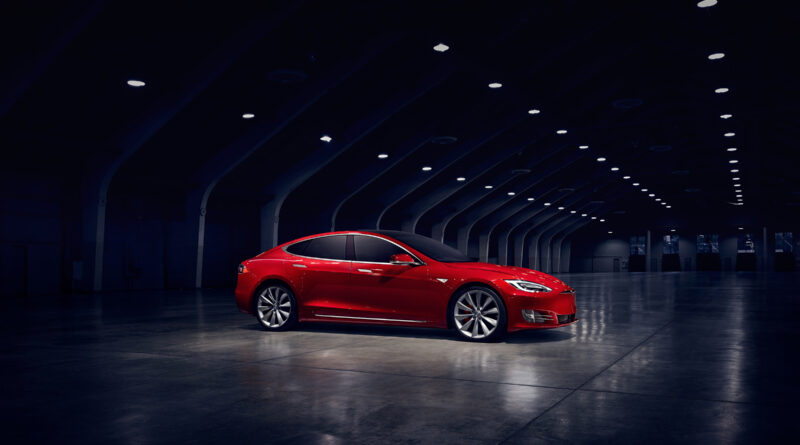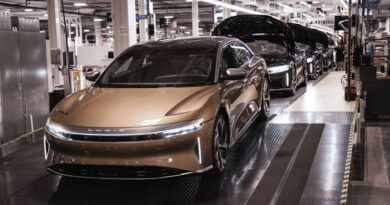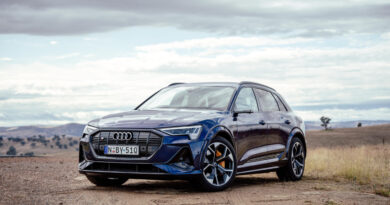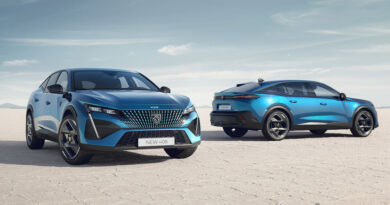Tesla value tops AUD$1 trillion
Tesla’s value has topped AUD$1 trillion.
Tesla’s stock market capitalisation shot past AUD$1 trillion overnight, marking a new record for the EV leader.
Tesla shares ended the week’s trading on the New York stock exchange at US$880.02 per share, taking the company value to US$834 billion – or AUD$1.07 trillion.
A cheeky week-long rally added tens of billions of dollars to the manufacturer of the most popular electric car in the world, the Tesla Model 3.
It means the Californian-based car company is not only the most valuable car maker in the world by a massive margin (second place Toyota is worth about one-third the value of Tesla), but it is also now worth more than Facebook (US$762 billion) and fast catching Google US$1.22 trillion).
Want the latest EV news and reviews delivered to your inbox? Subscribe to our weekly newsletter!
It also helped CEO Elon Musk become the world’s richest person during the week, topping about US$186 billion (AUD$240 billion).
Throughout 2020 Tesla’s share price increased almost 700 percent.
If the current trajectory continues – granted, it’s an enormous “if” – it wouldn’t be long until Tesla passes giants such as Amazon (US$1.6 trillion), Microsoft (US$1.66 trillion) and Apple (US$2.22 trillion).
Tesla value tops AUD$1 trillion: an Australian perspective
To put Tesla’s share price in perspective, it’s worth comparing it some of Australia’s biggest companies.
Tesla’s AUD $1.07 trillion valuation makes it worth many multiples of some of our biggest companies, including BHP (AUD$256 billion), Rio Tinto (AUD$207 billion), Commonwealth Bank (AUD$220 billion), Westpac (AUD$178 billion), National Australia Bank (AUD$122 billion) and ANZ (AUD$115 billion).
In fact, if you combine the value of those companies – our two biggest miners and the Big Four banks – at the close of trading this week they totalled AUD$842 billion, still well short of Tesla.
Tesla’s stock valuation is an astonishing feat for a brand that manufactured its first (very) low volume car in 2005 before moving more into the mainstream in 2012 with the Model S.
In 2020 Tesla made 499,450 cars, a healthy increase over the previous year and a record for the brand, but still well short of the top brands.
Toyota, Volkswagen crush Tesla on sales, not value
In comparison, Toyota manufactured almost 10 million vehicles in 2020 (the December figures are yet to be released) yet its market capitalisation is around AUD$320 billion.
The Volkswagen Group – which owns Volkswagen, Audi, Porsche, Skoda, Lamborghini, Porsche, Bentley and more – looks like falling just shy of Toyota on production, but will still make something close to 9 million vehicles in 2020. Its market capitalisation is around AUD$125 billion.
Tesla is valued at more than double the combined value of the world’s two largest car makers, which in the most recent financial years (they differ between Europe and Japan) made about AUD$59 billion between them (AUD$29 billion for Toyota and AUD$30 billion for Volkswagen).
Of course, there’s a lot more going on and investors clearly have enormous belief in Tesla’s potential – even beyond the massive strides it has made in its relatively short existence.
Musk has targeted 20 million sales by 2030, which would comfortably make Tesla the biggest car maker in the world. If he even got to half of that it would be an enormous achievement, although many clearly believe it can be done.
Tesla value tops AUD$1 trillion: Look to the future
Over almost a decade of stock market losses since listing in 2010 Tesla’s share price surged, an indication of the belief investors had in its promise to revolutionalise the car market with batteries and electricity.
It’s a goal that has to some extent been achieved. Tesla has forced other car makers to shift towards EVs, albeit slowly.
But it’s worth putting Tesla’s share price in perspective.
In most of 2019 and the first three quarters of 2020 (the Q4 2020 results are due in late January) Tesla was profitable.
So, in the most recent four quarters Tesla posted profits of US$556 million.
However, more than double that – US$1.3 billion – was revenue earned from selling regulatory emissions credits to rival car makers.
While there’s no issue with that – Tesla has invested in EVs and is reaping the rewards of the regulatory environment it plays in – it’s revenue that Tesla admits will dry up in coming years. Once other cars makers begin making EVs in big numbers – something set to step up in 2021 with dozens of new EV arrivals – they have less of a need to buy credits.
So, there’s increasing pressure on making money from cars.
The big question is how much further Tesla’s share price can go.
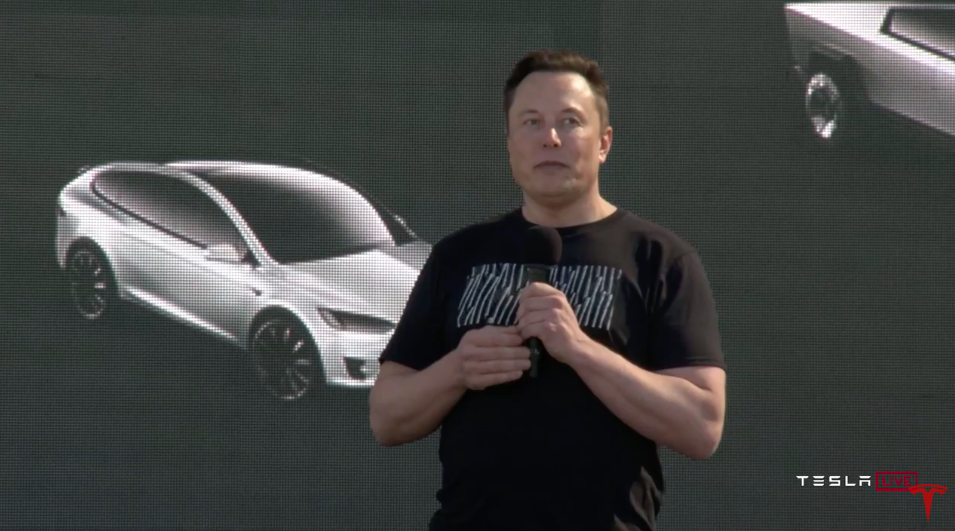
For years short-sellers (those trying to make money on the stock price dropping) have been betting against Tesla and have for the most part been burnt.
Yet it’s difficult to see the stratospheric rise continuing.
Plenty have long questioned Tesla’s value.
Even Tesla chief Elon Musk has previously tweeted he thinks the company is overvalued. That was in May 2020.
However, he has also said previously he believes Tesla will be worth more in the medium term.
With cars such as the Cybertruck set to storm America and Model Y about to launch in Australia and promises of the most affordable model – the Tesla Model 2 – there’s certainly plenty to look forward to.
But Musk is well aware profitability is key to maintaining that share price.
After all, one very big part of a stock’s valuation is its ability to make money.

